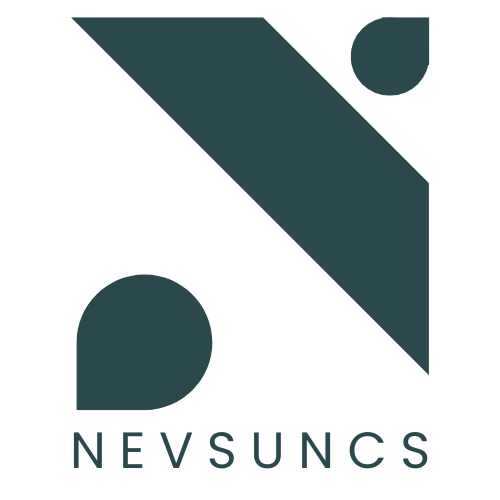Table of Contents
ToggleFreelancing can feel like a rollercoaster ride—thrilling, unpredictable, and sometimes a bit nauseating. But amidst the chaos lies an incredible opportunity for growth and success. Setting clear freelancer goals is like having a GPS for that wild ride, guiding one through the twists and turns of client demands, deadlines, and the occasional existential crisis.
Imagine waking up each day with a purpose, knowing exactly what needs to be tackled. Whether it’s landing that dream client or mastering a new skill, having defined goals can turn a freelancer’s hustle into a well-oiled machine. So let’s dive into the essential freelancer goals that not only keep the creativity flowing but also ensure a steady income—because who doesn’t want to keep the lights on while pursuing their passion?
Understanding Freelancer Goals
Freelancer goals provide direction in a dynamic work environment. They facilitate navigation through challenges while maximizing opportunities.
Importance of Setting Goals
Setting goals increases motivation. It helps freelancers clarify their ambitions and define their priorities. Goals generate a roadmap for success, preventing aimlessness. Additionally, they offer measurable outcomes to track progress. When benchmarks are established, freelancers can assess their achievements. This enables better adjustment of strategies. Achieving these milestones fosters confidence, which enhances creativity. Ultimately, goal setting contributes to overall job satisfaction and productivity.
Types of Goals for Freelancers
Freelancers can pursue several types of goals. Financial goals center around income targets or saving objectives. Creative goals focus on skill enhancement or expanding service offerings. Professional development goals include networking, obtaining certifications, or attending workshops. Time management goals often aim to improve work-life balance or productivity. Client goals relate to acquiring new clients or maintaining long-term relationships. Establishing a mix of these goals ensures a comprehensive approach toward personal and professional growth.
Short-Term Goals

Short-term goals play a vital role for freelancers navigating their careers. These objectives help maintain focus and drive in daily tasks.
Project-Based Objectives
Setting project-based objectives makes it easier to define specific outcomes for each assignment. Define clear deliverables for clients to enhance communication and satisfaction. Breaking projects into manageable phases allows for steady progress tracking. Establishing deadlines ensures timely completion while boosting accountability. Freelancers who create detailed project plans demonstrate professionalism, potentially attracting more clients. Prioritizing projects helps align efforts with client needs, generating positive relationships and repeat business.
Income and Financial Targets
Income and financial targets provide essential benchmarks for a freelancer’s financial health. Establish specific revenue goals for each month to build a steady income flow. Tracking earnings against these targets helps assess the effectiveness of marketing strategies and client acquisition. Setting aside a portion of income for savings fosters long-term stability. Creating a budget allows freelancers to manage expenses effectively, promoting financial discipline. By evaluating progress toward financial goals regularly, freelancers can make informed decisions to adjust pricing or services as needed.
Long-Term Goals
Long-term goals play a crucial role in a freelancer’s career journey, providing the framework for sustained growth and achievement. By focusing on continuous improvement and strategic objectives, freelancers can navigate the future with confidence.
Career Development Aspirations
Career development aspirations involve aiming for skills enhancement and expertise within a chosen field. Freelancers should identify specific areas for growth, such as mastering new software or pursuing advanced certifications. Setting concrete milestones helps in charting progress, ensuring they remain competitive in an evolving market. Regularly attending industry conferences can also widen networking opportunities and introduce new clients. By aligning personal interests with market needs, freelancers can steer their careers towards fulfilling and lucrative paths.
Building a Personal Brand
Building a personal brand establishes a freelancer’s unique identity in the marketplace. Crafting an online presence through a professional website and active social media engagement showcases expertise and sets them apart from competitors. Consistent content sharing, such as articles or case studies, demonstrates knowledge and attracts potential clients. Freelancers should also gather testimonials and showcase successful projects to enhance credibility. Creating a visually appealing brand identity, encompassing logos and color schemes, further strengthens recognition and fosters trust among clients, leading to long-term relationships.
Strategies for Achieving Freelancer Goals
Freelancers can employ various strategies to achieve their goals effectively. Implementing solid time management techniques can significantly enhance productivity and overall success.
Time Management Techniques
Prioritizing tasks is essential for freelancers managing multiple projects. Tools like time tracking apps help monitor hours spent on specific activities. Creating daily or weekly schedules can establish a clear structure for workloads. Setting boundaries regarding work hours prevents burnout and maintains a healthy balance. Breaking projects into smaller, manageable tasks enhances focus and eases progression through deadlines. Utilizing methods such as the Pomodoro Technique encourages sustained concentration while allowing necessary breaks to recharge.
Networking and Community Engagement
Building a strong professional network opens channels for collaboration and growth. Attending industry events allows freelancers to connect with peers and share insights. Joining online forums or social media groups promotes engagement with like-minded individuals. Participating in workshops or webinars helps expand knowledge and skills while fostering relationships within the community. Sharing accomplishments and experiences through content creation can attract attention and establish credibility in the marketplace. Leveraging these connections can lead to new opportunities and potential client referrals.
Freelancers who prioritize setting clear goals are better equipped to navigate the unpredictable nature of their work. These goals not only provide direction but also enhance productivity and creativity. By focusing on both short-term and long-term objectives, freelancers can create a structured approach to their careers.
Regularly evaluating progress helps maintain motivation and fosters a sense of achievement. Building a strong personal brand and engaging with professional networks further supports their journey. With the right goals in place, freelancers can transform challenges into opportunities and achieve lasting success in their chosen fields.







